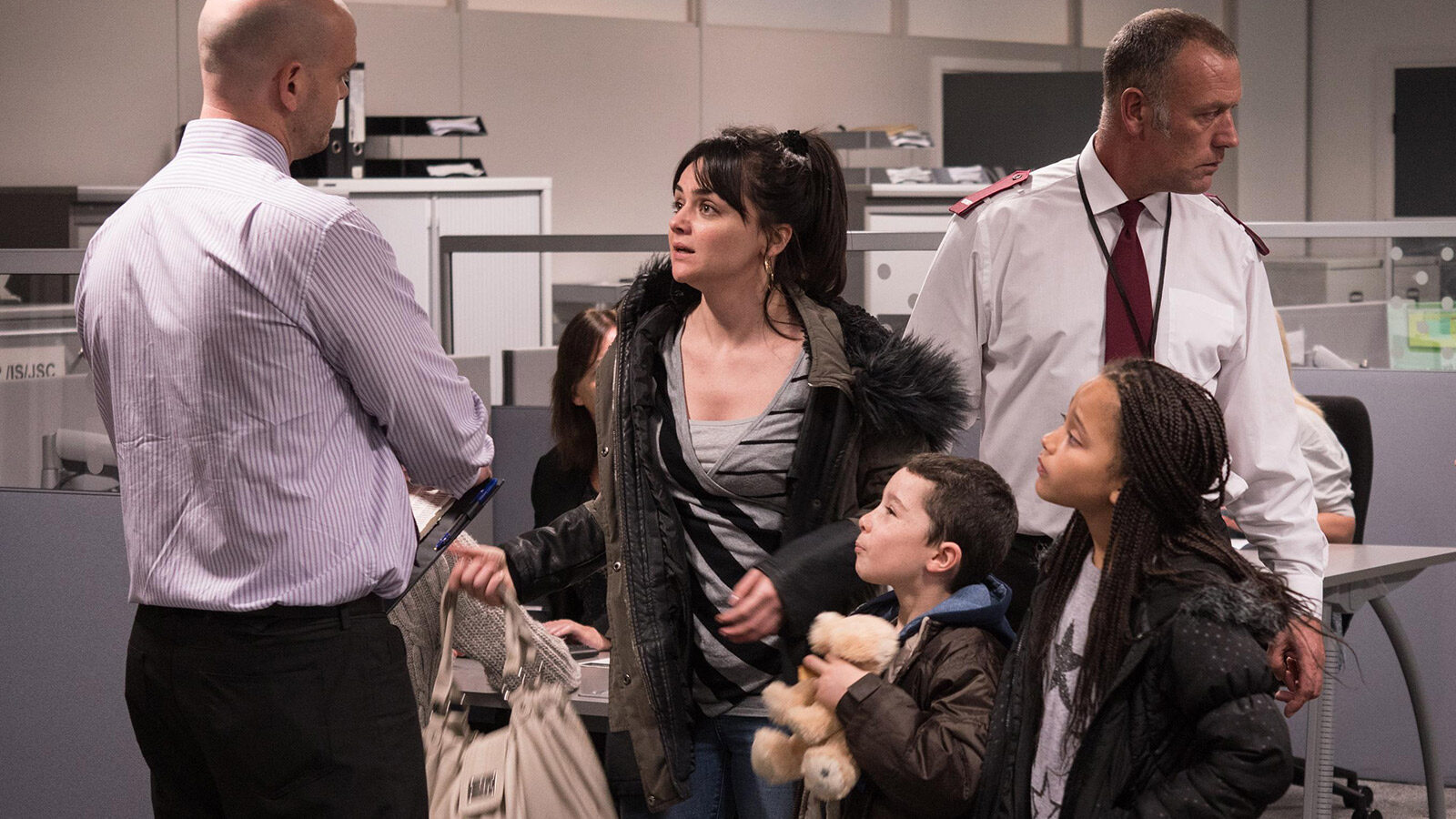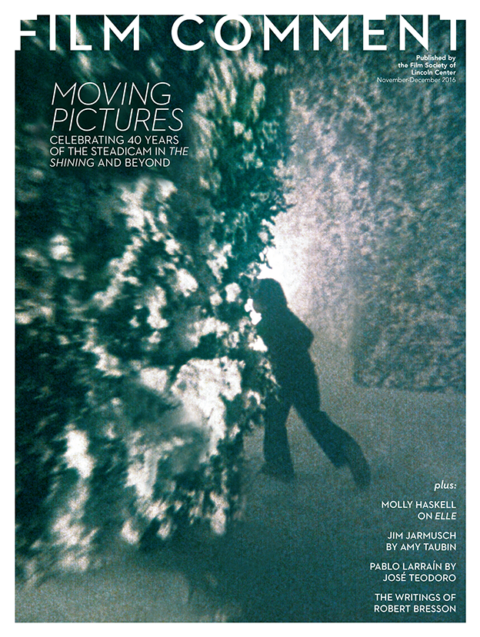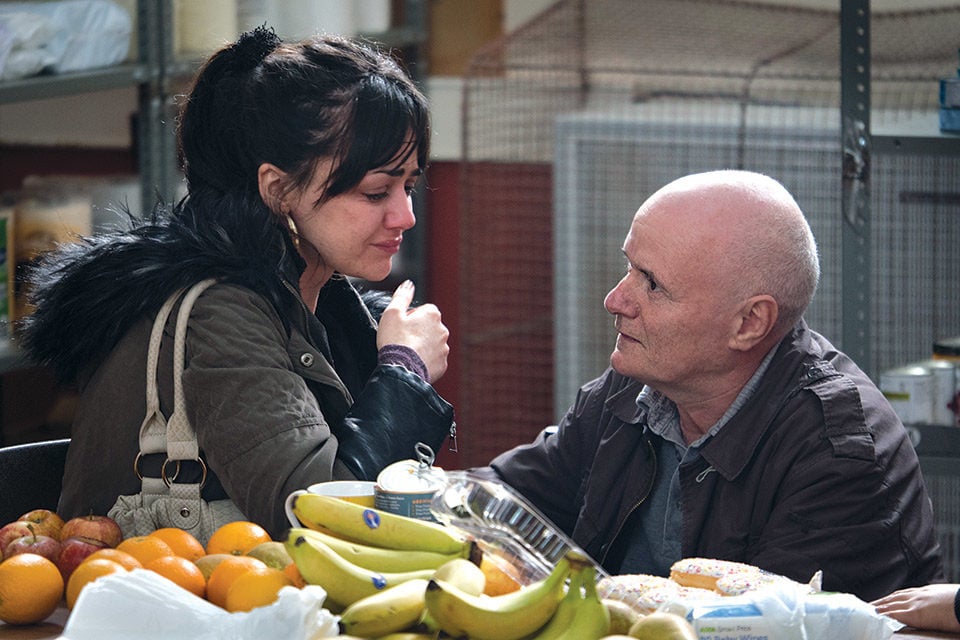By Michael Koresky in the November-December 2016 Issue

Review: I, Daniel Blake
(Ken Loach, UK/France/Belgium, Sundance Selects, Opening December 23)
One would think the suffocating centralization of the movie industry today would have encouraged a robust political counter-cinema. But the homogenizing tyrannies of studio-backed commercial product and social media have become too powerful for alternate voices to get heard. A strange result is that, despite the preponderance of issue-driven documentaries and far-right religious parables, the kind of left-wing humanist agitprop that Ken Loach has specialized in for 50 years (since 1966’s Cathy Come Home, which shocked the British populace with its depictions of homelessness and systemic poverty) is largely nonexistent in this era of outrage.

From the November-December 2016 Issue
Also in this issue
So for those who are looking for more to get angry about and are unfamiliar with Loach’s brand of social-realist soapboxing, I, Daniel Blake may serve as a welcome reminder of narrative cinema’s ability to rile us up and engender sympathy for society’s downtrodden. It makes sense that I, Daniel Blake would find an audience in the year of Brexit. Though swinging way left, Ken Loach’s broadside against the British state and its bureaucratic dehumanization of those in need is brute, direct, and singleminded, easily hitting a populist nerve. A frustrating watch on levels intended and not, Loach’s film follows with excruciating detail the attempts of the titular widowed, middle-aged carpenter (played by Dave Johns, a stand-up comic) in the northeast England city of Newcastle to wend his way through the bureaucratic state government’s Kafka-esque procedures and paperwork to secure Employment & Support Allowance (welfare), which is only available to him if he is working—or can prove he’s trying to find work—even though the heart condition he’s trying to get coverage for is the very reason he cannot work. The inhumane irony of the situation—and the automaton-like officials who block his every move, wielding clipboards and pens like shields and daggers—is enough to make one completely lose faith in the government to look after its citizens, as it does Daniel, whose rising disillusionment and downward spiral are charted throughout the film.
Johns, with his placid demeanor, makes for an unexpected guide through this nightmare, his everyman directness and “Oh, bollocks” anger mostly keeping easy sentiment at bay. Johns is never seen retching over in pain or gasping for breath—his sickness is kept internal, a decision on the part of Loach and screenwriter Paul Laverty that is wise both for the way it refuses to court overt sympathy and how it reminds viewers that ailments need not be written on our faces to be dead serious. The camera doesn’t naturally love Johns, nor does he invite its love the way a more seasoned actor might, allowing for a measured, distanced portrayal of sadly common indignity rather than victimhood (imagine Timothy Spall or Jim Broadbent in the role for a much more ingratiating Daniel). The more traditionally charismatic Hayley Squires plays Katie, a sort of parallel protagonist, a single mother of two relocated to Newcastle from London after being kicked out of her flat. Daniel and Katie meet amid the inhuman environs of the social security office, where she is summarily ejected for “causing a scene” after being refused service for showing up late to her appointment. The two become friendly, and Daniel takes a shine to her endearing kids, finding some purpose in lending a hand with their plumbing and providing consolation for the increasingly desperate mother; the closest Daniel gets to adorable is giving little Daisy (Briana Shann) a hand-carved fish mobile for her bedroom, a loving gesture that seems to imbue him with the dignity the larger world deprives him of daily.

Katie’s story heads in a more conventionally melodramatic direction, allowing Daniel to save her from herself in schematic fashion. This is after all a film not above parading a three-legged dog in front of the camera. Where I, Daniel Blake excels is in portraying the incremental dehumanization of the state’s endless assessment process, which is particularly unforgiving of older citizens who might not know how to even use a computer (Daniel has apparently never wielded a mouse before), let alone send electronic résumés or video CVs to “digital by default” companies. Being put on hold for an hour and 48 minutes would drive anyone mad, let alone a man with no pension or income being given the runaround by the very welfare assessors that control his fate.
A climactic emotional explosion momentarily turns Daniel into something of a working-class hero, although Loach could take up that mantle himself. In October, the U.K. government announced changes in the way it processes recipients of Employment and Support Allowances, saying they would no longer have to go through multiple assessment tests to maintain their benefits: a positive development, if only a first step. Loach’s film has been a public talking point in the discussions that led to these reforms. For Loach, who came out of apparent retirement because he felt so driven to tell this story, such real-world results are a clear triumph. That plus a Palme d’Or, and maybe the social-realist drama will be back in vogue.




